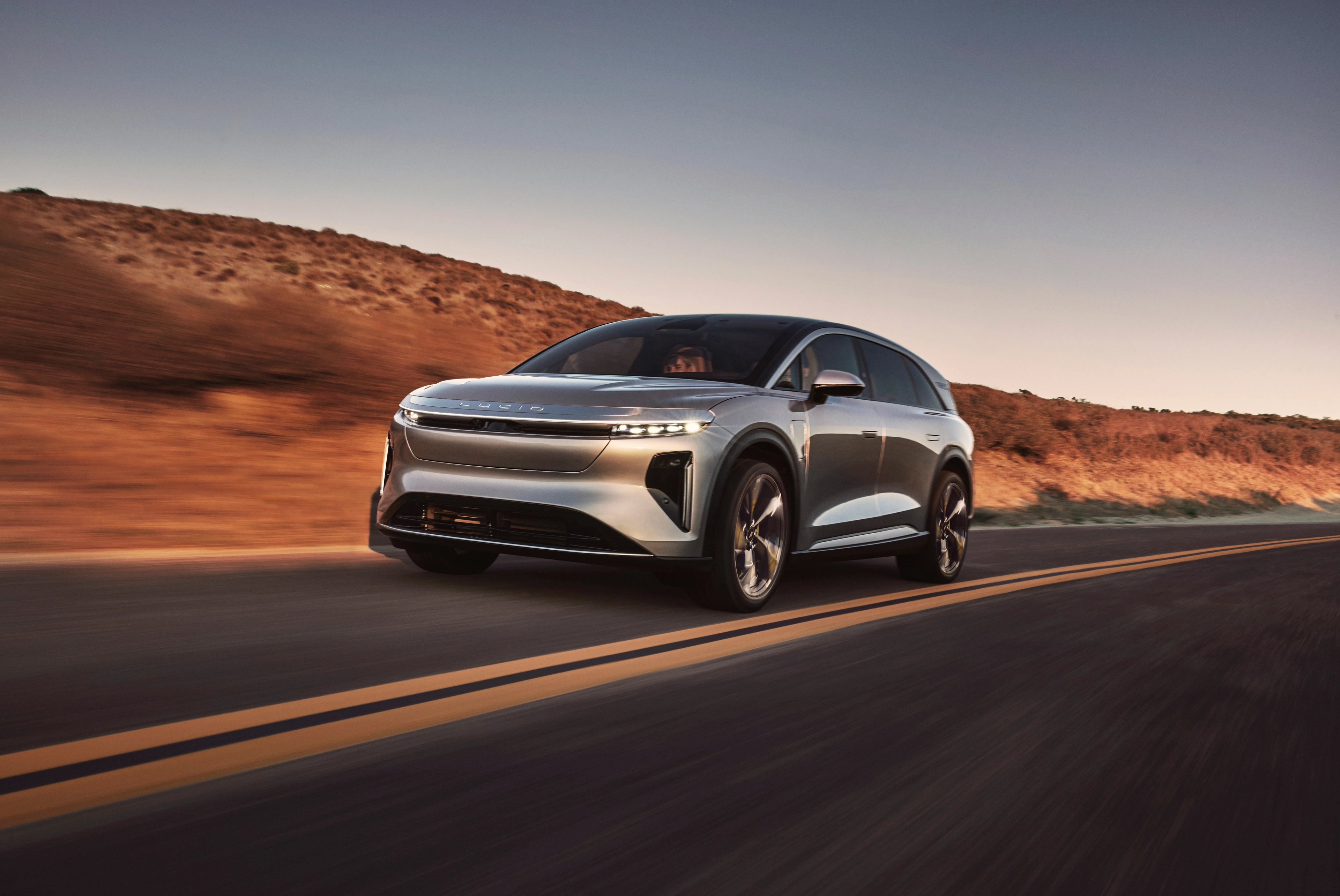Lucid (LCID 3.03%) makes impressive electric vehicles, and the company's latest quarterly results show that it's making progress on improving vehicle sales and narrowing its losses. But tariffs, economic uncertainty, and a slowing electric vehicle market could hinder Lucid.
Here's what the automaker's management hopes to achieve over the next year, and what outside forces may stand in its way.

Image source: Lucid.
The company plans to double its vehicle production
Lucid's management said the company is on track to manufacture 20,000 vehicles in 2025. If it achieves that goal, it'll be more than double its production from last year. That might be a bit ambitious, considering Lucid produced just over 2,200 vehicles in the first quarter.
That means Lucid will ramp up vehicle production to nearly 6,000 vehicles in each of the three remaining quarters -- triple its production in the first quarter.
Still, Lucid appears to be moving in the right direction with vehicle production, deliveries, and sales. Vehicle deliveries increased by 58% to 3,109 in the quarter, helping Lucid's revenue rise 36% to $235 million.
It'll have an expanded vehicle lineup
Lucid's award-winning Air sedan is a showstopper for both its looks and tech -- the largest battery pack has an industry-leading electric range of 516 miles. But for a couple of years, variations of the Air were the only thing Lucid sold.
Thankfully, that changed recently with the launch of its Gravity SUV. Customers can order the Grand Touring Gravity model now, with a starting price of nearly $95,000. Deliveries to the public began in late April, though the company said recently that it's had some production "hiccups" lately.
Adding an SUV to its lineup is a smart move, considering that 58% of new vehicles sold in the U.S. are SUVs. But it's the company's forthcoming $50,000 midsize SUV that investors should really keep an eye on.

NASDAQ: LCID
Key Data Points
The new vehicle, called Lucid Earth, won't launch until late 2026 or even 2027, but will eventually help the company expand its lineup and lower its starting point for its vehicles.
Electric vehicles are costlier than traditional gas-powered vehicles, and their prices have continued to rise. The average transaction price for a new EV was $59,200 in March, so a $50,000 Lucid Earth SUV, although not inexpensive, could help the company reach customers with smaller budgets and fall well within the price range of many other electric vehicles.
Lucid could feel the impact of tariffs and EV market uncertainty
While the Trump administration has made several tariff deals recently, there is still a lot of uncertainty around how even milder tariffs on auto imports could impact Lucid.
The vehicles Lucid sells in the U.S. are made here, but some vehicle parts are sourced abroad. Lucid's interim CEO, Marc Winterhoff, said recently that the company has signed an agreement with its battery cell and graphite suppliers to move production to the U.S., but added that "it's not something that we can switch on today, but it's in the near future."
Despite those moves, Winterhoff said that Lucid's gross margins "headwind" will be in the range of 8% to 15% because of tariffs. Tariffs are a very fluid situation, so it's impossible to predict what will happen over the next year, but Lucid is clearly expecting them to negatively impact its business.
Where will Lucid be in one year?
When you add it all up, I think the next year could be bumpy for Lucid. Tariffs will likely negatively impact the company, just as they have for nearly every other automaker.
And even if tariffs get smoothed out soon, it's still possible that any type of slowdown in consumer spending because of the tariffs -- or general economic uncertainty -- could dampen customer demand for high-end EVs.
The good news is that Lucid says it has enough money to keep it going through mid-2026. But with tariffs still a problem and a slow start to manufacturing relative to its year-end goal, it might be best for potential investors to take a wait-and-see approach before buying Lucid.
Waiting a while before buying Lucid's stock will give investors a chance to evaluate Lucid's proposed timeline for launching a cheaper vehicle, and it will give them a chance to see how it navigates the current tariff situation. As with the rest of the EV industry right now, Lucid's potential success is looking like it may take longer than initially thought.





